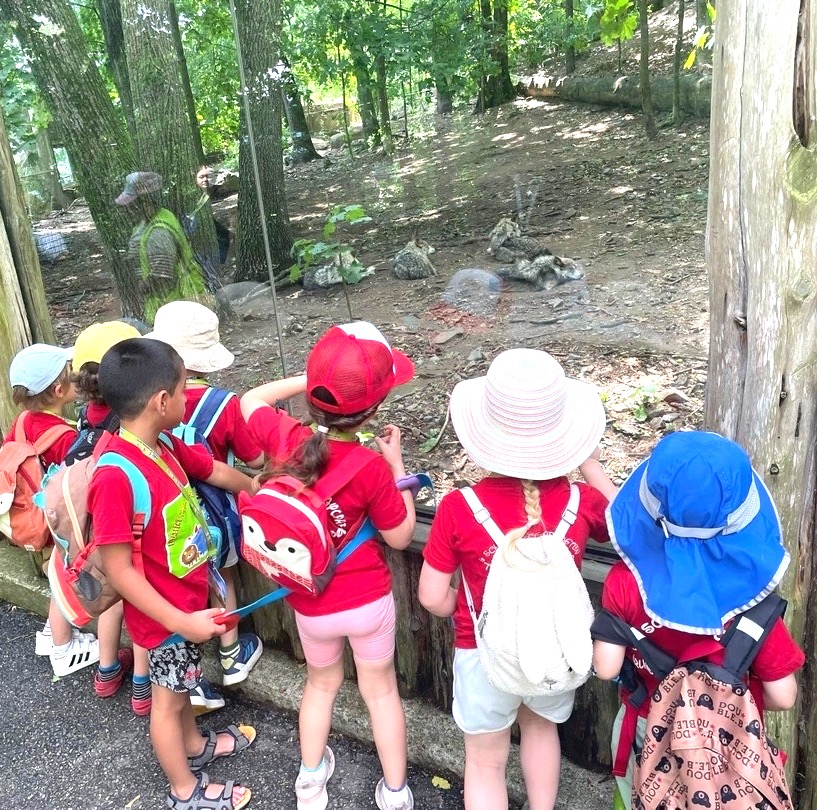
Preschoolers
Our experienced and dedicated preschool teachers plan educational and bilingual themed lessons for our preschool classes. Our children get to explore the classroom and participate in hands-on lessons that incorporate mathematics, language and literacy, movement, art, science, music, and dramatic play in both English and Spanish languages. The lessons become increasingly challenging throughout the year to prepare our students for the Preschool or Pre-K class for the following fall. We follow project themes and topics that incorporate math concepts and problem-solving skills, early literacy skills, hands-on science activities and observations, art lessons, and more! We offer a private outdoor playground space. Our students get to enjoy music and Zumbini classes. We maintain low student to teacher ratios to ensure that each child gets personalized attention. Our curriculum is designed to provide bilingual education in English and Spanish.
 Private Outdoor playground space
Private Outdoor playground space Music
Music Zumbini
Zumbini Low student to teacher ratios
Low student to teacher ratios Bilingual Education in English and Spanish
Bilingual Education in English and Spanish
Our bilingual Pre-K program provides a dynamic educational experience for students to learn in both English and Spanish. Our experienced teachers design challenging and interactive lessons throughout the academic year that encourage inquiry-based learning, hands-on science experiments, problem solving, critical thinking in mathematics, language and literacy, art, music, Spanish cooking, active movement activities, and community-based field trips. Our students have access to a variety of learning environments, including classrooms, a multipurpose room, private playground areas, nature walks, and observation trips. With an individualized education, our students are well-prepared for Kindergarten and beyond, developing skills in handwriting, early reading, mathematics, science, and social studies. Our engaging lessons foster a sense of responsibility for their own learning through inquiry-based methods.

